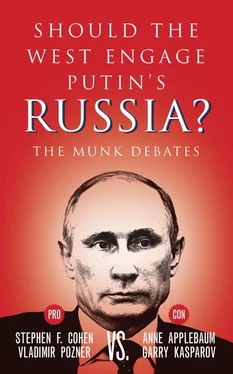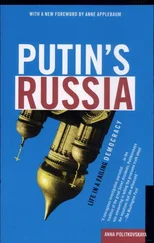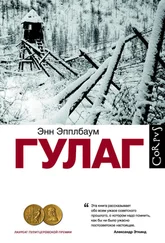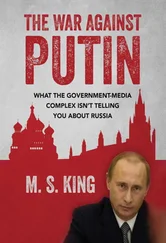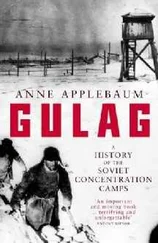SHOULD THE WEST ENGAGE PUTIN’S RUSSIA?
Pozner and Cohen vs.
Applebaum and Kasparov
THE MUNK DEBATES
Edited by Rudyard Griffiths
Since we started the Munk Debates, my wife, Melanie, and I have been deeply gratified at how quickly they have captured the public’s imagination. From the time of our first event in May 2008, we have hosted what I believe are some of the most exciting public policy debates in Canada and internationally. Global in focus, the Munk Debates have tackled a range of issues, such as humanitarian intervention, the effectiveness of foreign aid, the threat of global warming, religion’s impact on geopolitics, the rise of China, and the decline of Europe. These compelling topics have served as intellectual and ethical grist for some of the world’s most important thinkers and doers, from Henry Kissinger to Tony Blair, Christopher Hitchens to Paul Krugman, Peter Mandelson to Fareed Zakaria.
The issues raised at the Munk Debates have not only fostered public awareness, but they have also helped many of us become more involved and, therefore, less intimidated by the concept of globalization. It is so easy to be inward-looking. It is so easy to be xenophobic. It is so easy to be nationalistic. It is hard to go into the unknown. Globalization, for many people, is an abstract concept at best. The purpose of this debate series is to help people feel more familiar with our fast-changing world and more comfortable participating in the universal dialogue about the issues and events that will shape our collective future.
I don’t need to tell you that that there are many, many burning issues. Global warming, the plight of extreme poverty, genocide, or our shaky financial order: these are just a few of the critical issues that matter to people. And it seems to me, and to my foundation board members, that the quality of the public dialogue on these critical issues diminishes in direct proportion to the salience and number of these issues clamouring for our attention. By trying to highlight the most important issues at crucial moments in the global conversation, these debates not only profile the ideas and opinions of some of the world’s brightest thinkers, but they also crystallize public passion and knowledge, helping to tackle some of the challenges confronting humankind.
I have learned in life — and I’m sure many of you will share this view — that challenges bring out the best in us. I hope you’ll agree that the participants in these debates challenge not only each other but also each of us to think clearly and logically about important problems facing our world.
Peter Munk
Founder, Aurea Foundation
Toronto, Ontario
INTRODUCTION BY RUDYARD GRIFFITHS
It is the geopolitical debate of the moment: How should the West respond to the actions of Vladimir Putin’s Russia? For some the answer is obvious. Russia’s annexation of Crimea and its waging of a “hybrid war” in eastern Ukraine that has left over 6,000 people dead and another 16,000 wounded demands a concerted and forceful international response. Russia should be subjected to crippling economic sanctions targeting not just Putin and his inner circle but the country’s banking, energy, and industrial sectors. Russia should be kicked out of the West-led international institutions that had previously welcomed Russian participation. The embattled Ukrainian military should be supplied with lethal defensive weapons to target separatist artillery and mortars. The North Atlantic Treaty Organization (NATO) should deploy troops to the Baltic States and threaten the use of military force if Russia tries to violate the sovereignty of a NATO member state. In short, Russia should be made to pay an ongoing and punishing price for its actions in Crimea and Ukraine — one steep enough to convince Putin to halt the destabilization of eastern Ukraine and forgo any ambitions he might have to empower Russian minorities in other former Soviet republics. Isolation, not engagement, is the only strategy to contain Russia.
But is taking a hard line on Russia going to further peace and stability in eastern Europe, or the West’s own geopolitical interests? Like any conflict, the origins of the current standoff between Russia and the West are complex and multi-faceted. Since the end of the Cold War, the West has needlessly stoked Russian anxieties about encirclement and regime change by aggressively expanding NATO into the former Soviet bloc. The West’s disregard for Russia’s “sphere of influence” is why Putin ultimately reacted the way he did to the ousting of Ukraine’s pro-Russian government and the installation of a pro-European parliament in Kiev. The conflict in Ukraine isn’t as simple as a good versus bad struggle between European reformers and Russian-backed Ukrainian oligarchs. This is a nation deeply divided by history, religion, and ethnicity, and Russia has legitimate concerns about the security of Russian minorities in Crimea and eastern Ukraine. By isolating Putin, the West threatens vital security interests it shares with Russia — from Syria to Iran to the balance of power in Asia — thereby increasing the risks for global instability and conflict.
These were the sharp and compelling battle lines at the Munk Debate on Russia, which was attended by over 3,000 people in Toronto, Canada, in April 2015. Four outstanding debaters took the stage to debate the motion “Be it resolved the West should engage not isolate Russia.” Garry Kasparov — Russian-born political dissident, outspoken critic of Vladimir Putin, and the world’s greatest living chess player — argued against the resolution. Kasparov was joined on stage by Anne Applebaum, an internationally renowned expert on Russian history, a director at the prestigious Legatum Institute on global affairs in London, and the Pulitzer Prize–winning author of Gulag: A History .
Vladimir Pozner and Stephen F. Cohen were their opponents in the debate, tasked with making the case for engaging Russia. Pozner is a veteran Russian journalist, a bestselling author who has been called the “Voice of Moscow” by CNN, and is the host of the top-rated weekly current affairs program on Russia’s largest television network. Stephen F. Cohen is a vocal American proponent of Russian engagement with the West. Cohen is a professor emeritus of history and Russian studies at New York University and has advised former Soviet president Mikhail Gorbachev and former U.S. president George H.W. Bush on East-West relations.
Neither team of debaters yielded a single point or argument, from the debate’s opening remarks to its last on-stage pronouncements. Vladimir Pozner set the hard-fought tone of the evening when he argued that the West should acknowledge the role its post–Cold War policy toward Russia played in creating the current crisis. Pozner bluntly characterized the West’s policy as “You lost the Cold War and you’ll pay for it. Just shut up. Go back into your cave. You’re a second-rate country and we don’t care about you anymore.” He went on, “Russia today would be a very different country had the West — the United States first and foremost — decided to engage Gorbachev’s Soviet Union and then Yeltsin’s Russia with the same aims with which it engaged post–World War II Germany and Italy, to help create and support democratic development and institutions.”
The acerbic Anne Applebaum rejected outright any analysis that sought to blame Western actions toward Russia for the current crisis: “To be clear, the Russia we have today is the result of our failed policy of engagement. Have we isolated and humiliated Russia since 1991? I would say no. Post-Soviet Russia was not humiliated and was given de facto great power status, as you’ve just heard. Russia received the Soviet United Nations (UN) seat, and the Soviet embassies and nuclear weapons, which were transferred from Ukraine… Since the fall of the Soviet Union, a series of American presidents, all of them, in fact, have sought to build up Russia’s international status.”
Читать дальше
